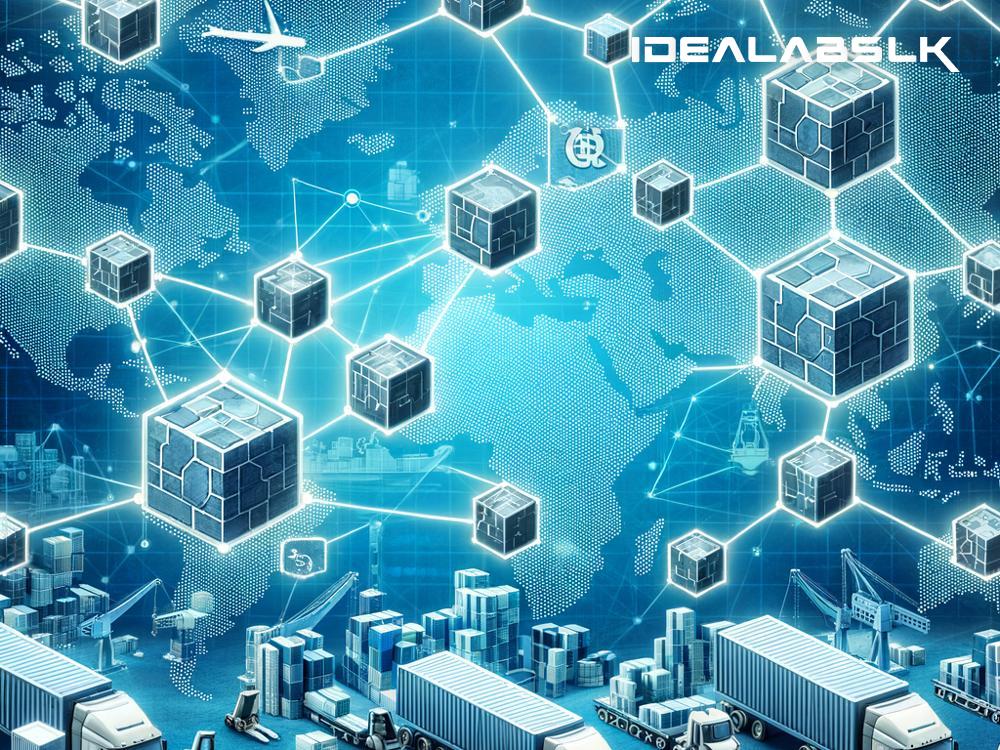How Blockchain Supercharges Smart Supply Chains: A Simple Guide
In the bustling world of supply chain management, where goods crisscross the globe in a dizzying dance of logistics, a revolutionary technology is making waves – blockchain. You might have heard of blockchain in the context of cryptocurrencies like Bitcoin. However, this technology's potential extends far beyond digital currencies, especially into the world of smart supply chains. But what exactly is a smart supply chain, and how does blockchain fit into the picture? Let's break it down in simple terms.
Understanding Smart Supply Chains
Imagine a supply chain as a giant, complex machine with countless parts moving in harmony. This machine oversees the journey of a product from its birth in a factory to its final destination in your hands. A "smart" supply chain is one that uses technology to gather and analyze data at every step of this journey. This data-driven approach helps businesses make better decisions, reduce waste, and ensure products reach their destination more efficiently.
Enter Blockchain
Blockchain introduces a level of transparency and trust that was previously unthinkable. At its core, blockchain is a digital ledger that records transactions across multiple computers in a way that ensures the records cannot be altered retroactively. This creates a permanent and tamper-proof record of every transaction.
In the context of supply chains, each transaction might represent the movement of goods from one place to another, a change in ownership, or a quality inspection, among other things. But how exactly does blockchain enhance smart supply chains? Let’s explore.
1. Transparency Up and Down the Chain
With blockchain, every stakeholder in the supply chain can have access to the same information. This means that manufacturers, logistics providers, retailers, and even consumers can track the journey of a product in real-time. If a coffee brand claims its beans are ethically sourced from a specific farm in Brazil, blockchain can prove it, offering consumers peace of mind and building trust in the brand.
2. Reducing Counterfeits and Ensuring Authenticity
Counterfeit goods are a massive problem in many industries. Blockchain helps combat this by providing an unforgeable record of every product's journey from factory to store shelf. If every legitimate product carries a blockchain record, counterfeits can be quickly identified and removed from the supply chain, protecting brands and consumers alike.
3. Streamlining Operations and Reducing Costs
One of the biggest challenges in supply chain management is dealing with the mountains of paperwork and bureaucracy that accompany international shipping. Blockchain can automate many of these processes through smart contracts – self-executing contracts with the terms directly written into code. This means faster turnaround times, reduced errors, and lower costs.
4. Improving Traceability and Managing Recalls
When a defective or unsafe product is discovered, it's crucial to trace it back to its source and remove it from the supply chain as quickly as possible. Blockchain provides an efficient method for tracing any product to its origin in a matter of seconds, enabling swift action in the face of recalls.
5. Enhancing Security and Reducing Fraud
Given its decentralized nature, blockchain is incredibly secure. It’s nearly impossible for hackers to tamper with the ledger without having their alterations spotted and corrected by others. This reduces the risk of fraud and ensures that sensitive data, such as proprietary manufacturing techniques or strategic partnerships, are kept safe.
The Future is Now
Though blockchain in supply chains sounds futuristic, numerous companies across industries—from food and beverage to electronics and pharmaceuticals—are already exploring its benefits. It’s not just about efficiency and cost saving; it’s also about building a more sustainable, transparent, and consumer-friendly business model.
Conclusion
Blockchain technology holds the promise of reshaping how global supply chains operate. By ushering in unprecedented transparency, reducing inefficiencies, and enhancing security, blockchain is not just improving supply chains; it is redefining the trust in the integrity of the products we consume every day. As we move forward, the integration of blockchain into smart supply chains will not be just an option but a necessity for businesses aiming to thrive in an increasingly complex and connected world. So, the next time you hear about blockchain, remember that its impact goes way beyond digital currencies – it's set to revolutionize the journey of products around the globe, making it smarter and more secure for everyone involved.

